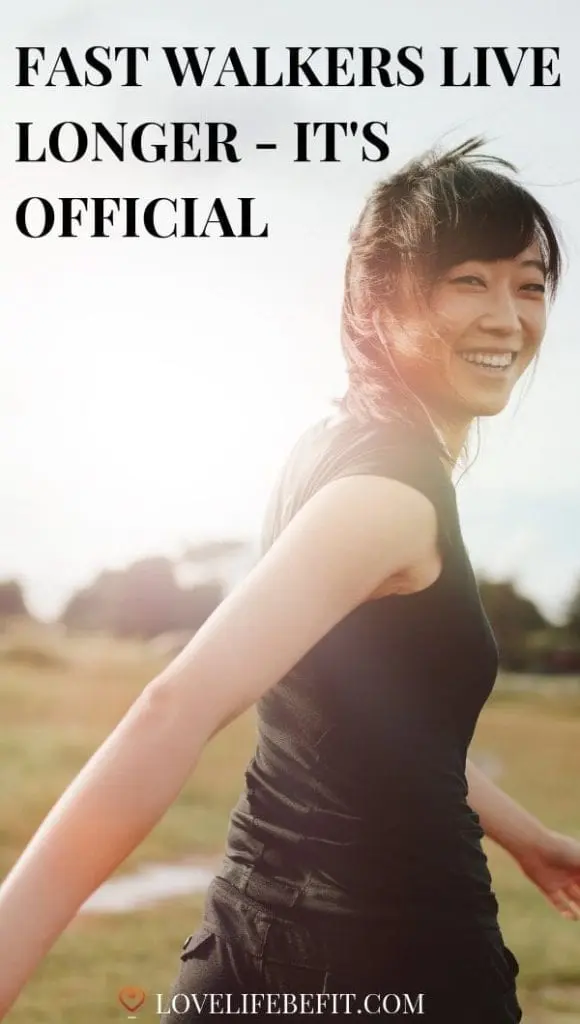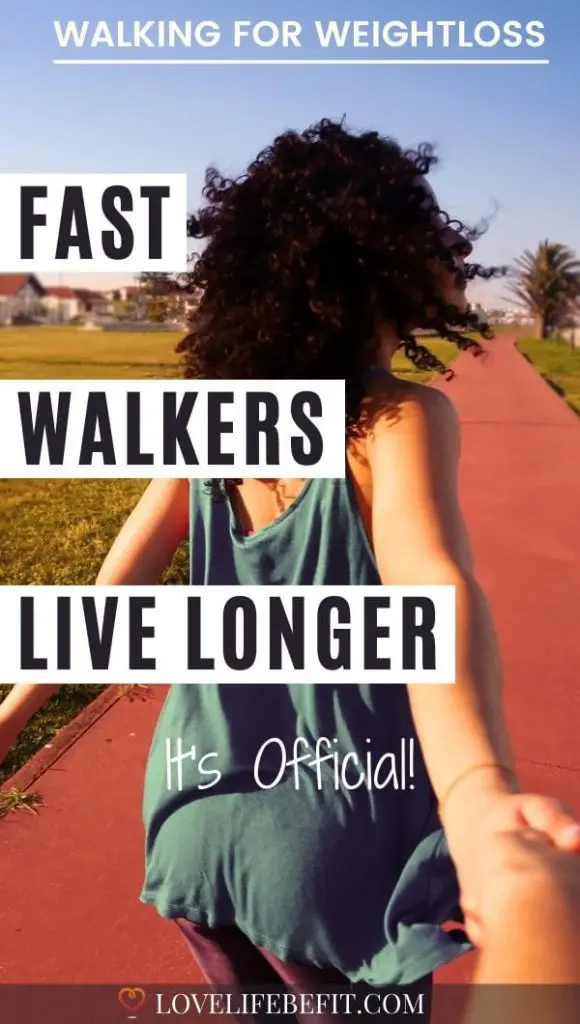I’ve always been a fast walker. It’s my thing. I guess everyone has a thing and mine just happens to be fast walking. Finding out fast walkers live longer, according to recent studies, just gives me an excuse.
You can trace it right back to my childhood and trying to keep up with my Dad who’s 6 ft 3 inches tall. Skipping along beside those long legs, I ended up with a normal walking style that’s more like most people’s idea of power walking.
So finding out my walking fitness may actually mean I live longer is just a big plus. I will unashamedly continue to power along the pavement in my effort to be fit and stay in shape.

How Fast Walkers Live Longer
Walking regularly at a brisk pace is a good indicator of cardio health. There’s a long list of health benefits when it comes to walking. Here are some of the main ones:
- Burning calories
- Reducing your risk of coronary heart disease
- Lower your blood sugar levels after eating
- Boost your energy and improving your mood
- Strengthen your leg muscles.
There are no downsides to walking. If you want to lose weight, walking is excellent exercise. You could say there’s pollution from car fumes if you’re walking in a city. Or maybe you could trip on uneven paving slabs. But it’s hard to argue walking is anything but good for you.
And now thanks to research published in the Mayo Clinic Proceedings (June 2019), walking pace is an important indicator of how long you’re going to live.
Recent Research: How Walking Speeds Affect Your Health
This latest research is based on a huge study of almost 475,000 participants. The study looked at body mass indexes (BMI) and walking speeds over a 7-year period. Participants had an average age of 58 years and an average BMI of 26.7 kg/m2. There were 12,800 deaths during the study period.
Perhaps surprisingly, BMI or any weight-related measurements such as waist circumference or body fat percentage weren’t the most important indicators of life expectancy.
It was walking briskly that made the biggest difference, boosting life expectancy by as much as 15 years in women and 20 years in men. (Life expectancy for slow-walking women 72 to 85, brisk walking women 87 to 88, slow walking men 65 to 81, brisk walking men 85 to 87).
This doesn’t mean it’s okay to neglect your weight. Being overweight will still impact your health. It’s just that neglecting your cardio could have a bigger impact.
What Counts As Walking Briskly?
Brisk walking is defined as around 3 miles per hour or 100 steps per minute. (If you want to check your own walking pace, count how many steps you take at your standard pace in 10 seconds and multiply by 6). Most people will find this pace easy to maintain.
When it comes to life expectancy, faster is better. Women walking at speeds of over 4 miles per hour could have a life expectancy boost of up to 15 years compared with walking at less than 3 miles per hour. This increase could be up to 20 years for men.
Thoughts From Love Life Be Fit
My tip? Whether you’re walking around the office, taking the dog for a walk, or popping to the shops, keep it brisk – it’s now official: fast walkers live longer!
Studies are only guidelines but being a healthy weight and exercising regularly not only improves your life expectancy, but it makes life so much more fun.


